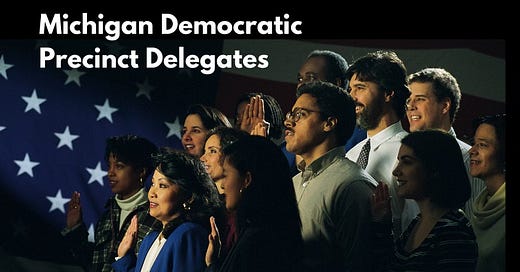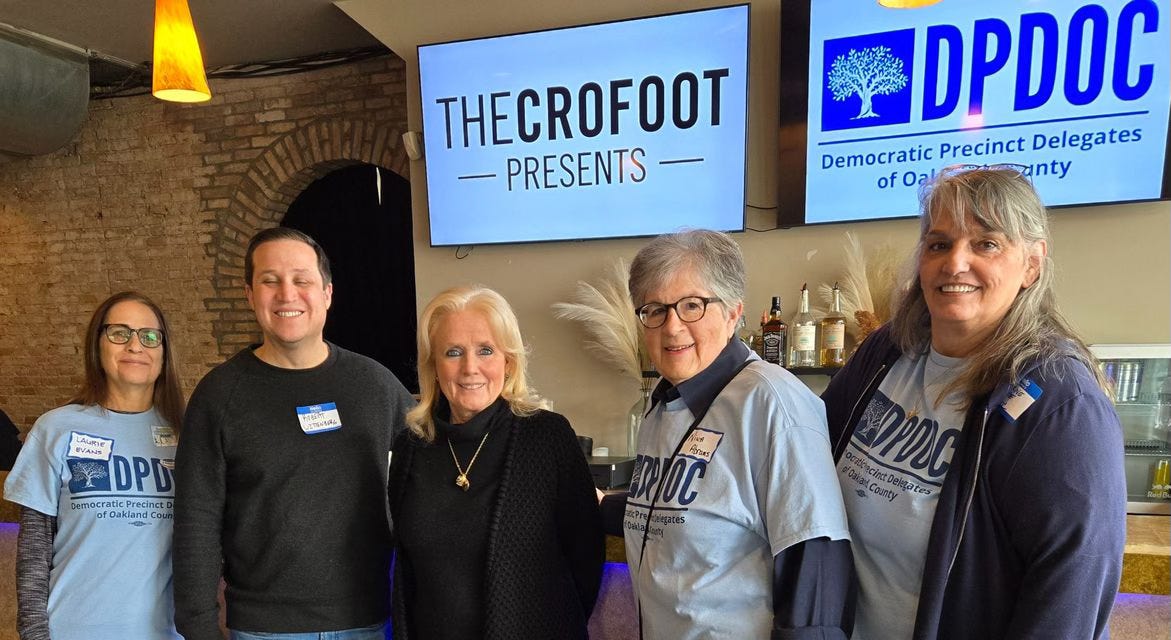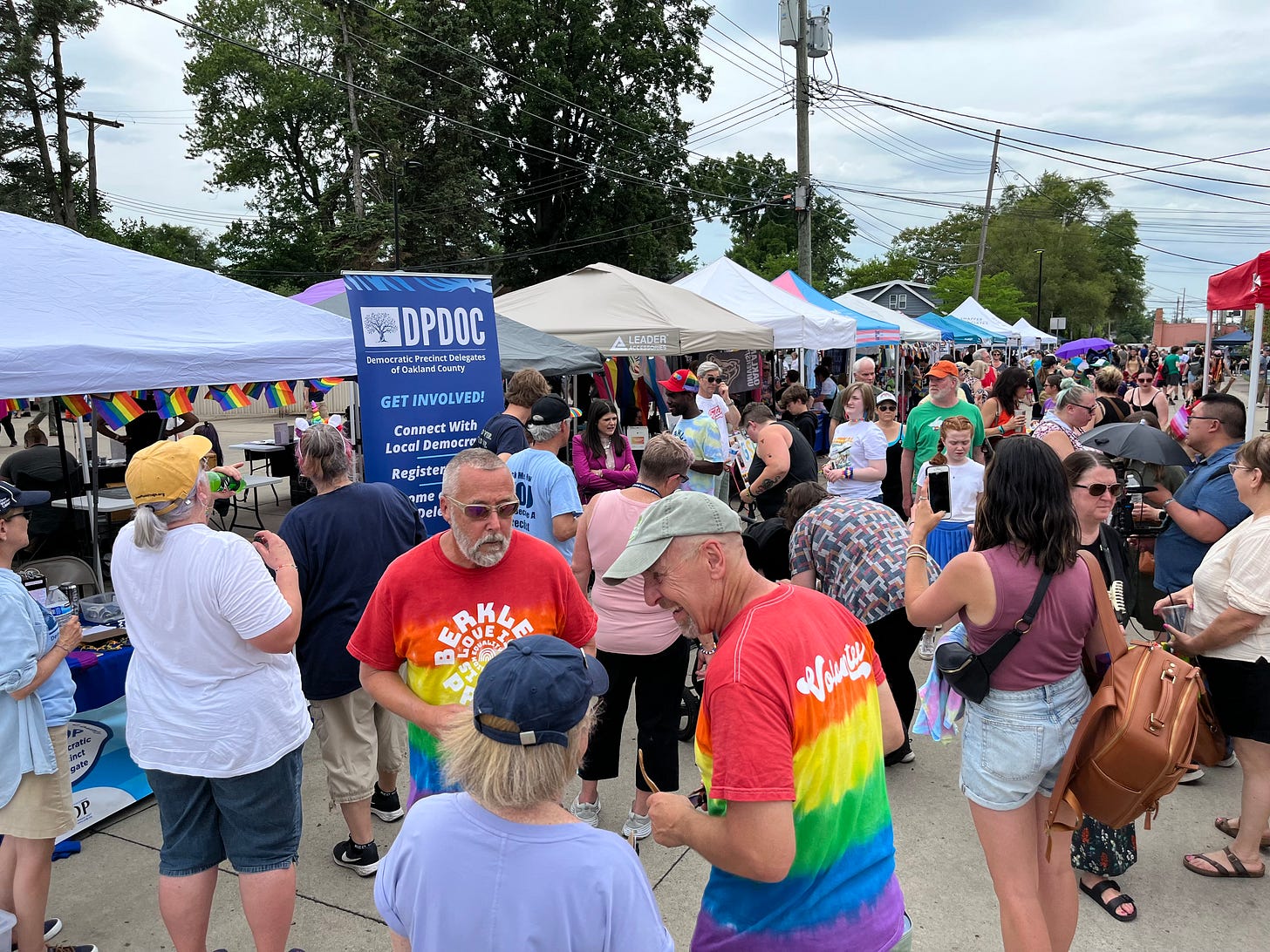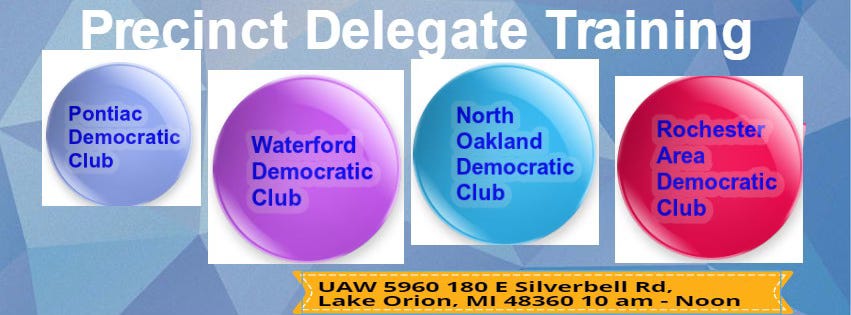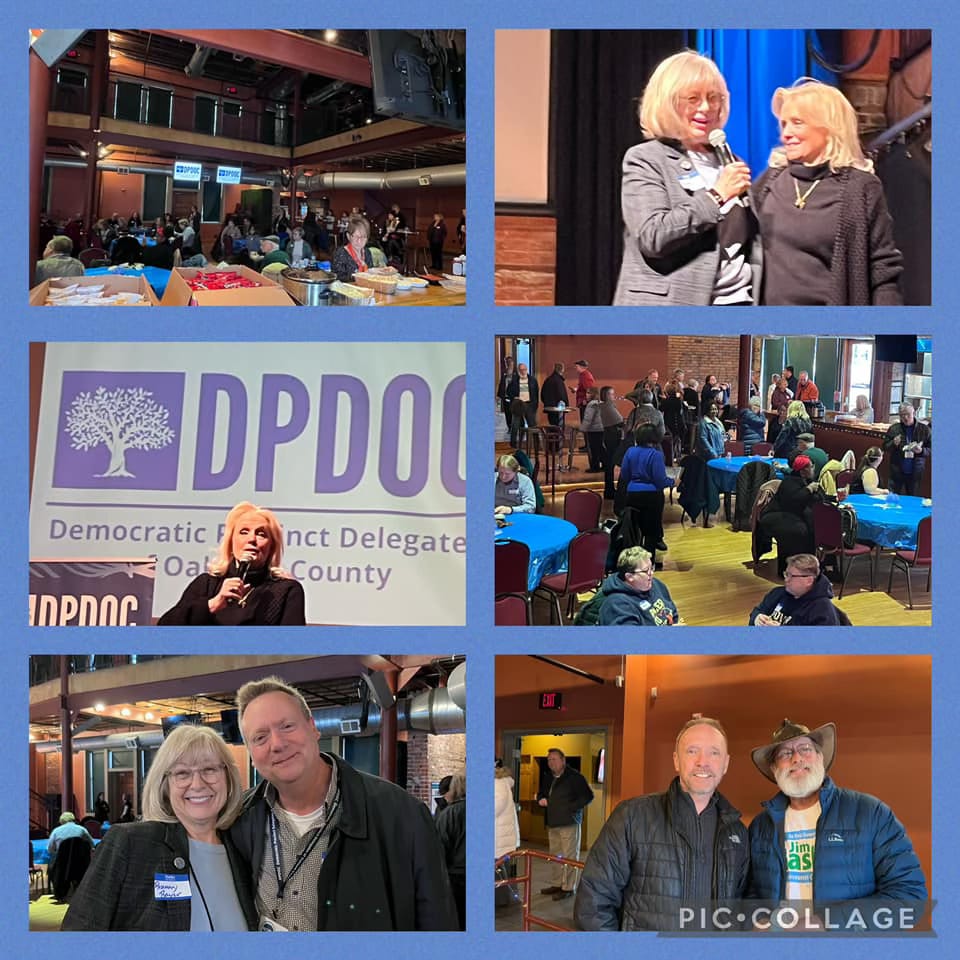By Paul D. Lehrman and Steve Schear
In Michigan there is an election coming up in August. But it's not a primary, and it's not for local offices. The election will choose Precinct Delegates, community organizers who work in their neighborhoods to engage voters and turn out the vote for Democratic candidates.
In Oakland County, which comprises the northeastern suburbs of Detroit, 670 people have filed to become Democratic PDs. They will be responsible for contacting neighbors and connecting with them. How they do this is up to them — they can work alone or in teams, and there are no set hours or minimal requirements.
Michigan’s system of electing precinct delegates is highly unusual. So is the number of Oakland County’s Precinct Delegate volunteers. In most places, there are no precinct leaders and few local volunteers who take responsibility for organizing their neighborhoods. The county’s capacity to recruit and train Precinct Delegates provides lessons that can serve as a model for others.
Recruiting PD’s With a Multi-Faceted Approach.
“Recruiting is always a challenge,” says Laurie Evans, Chair of DPDOC, the Democratic Precinct Delegates of Oakland County. “We approach it in several different ways.”
DPDOC and many of the local Democratic clubs have tables at local events and farmer’s markets, providing voting information, inviting voters to club meetings, and talking about the Precinct Delegate role. When someone expresses interest, they fill out an information sheet with contact info. DPDOC contacts them later to have individual conversations.
DPDOC also talks at local meetings, urging Democratic club and county party members to run for PD. New PDs are urged to ask their friends and family to canvass or phonebank, and then see if there might be an opportunity to recruit them to also become PDs. DPDOC’s Instagram account promotes the role of PDs and makes further contacts.
Finally, DPDOC uses a new software app called WAVE (currently available only in Michigan) and VAN to do text recruiting with lists of voters identified as likely volunteers, or who have volunteered with campaigns before. These likely volunteers are then invited to PD recruitment events.
“It’s an ongoing, all-the-time process,” says Evans. “Whenever we are in conversation with a voter, we always ask if they are interested in getting involved. If there is any level of interest, we make a pitch.”
Teaching PD’s To Work Effectively
Twice a month, DPDOC offers trainings that include an orientation, canvassing skills, and discussion of Michigan's voting laws.
"Our training addresses a variety of strategies and approaches," says Evans. "We offer presentations on voter registration, how to recognize and counter disinformation, reaching young voters, talking to rural and Republican voters, and other current issues to discuss with voters, such as the role of local school boards.” Reaching out to elected officials, both state and local, DPDOC sponsor presentations on a variety of issues, including resisting negative narratives in media, learning to use WAVE, and why it's a good idea to become a notary public.”
Precinct Organizers Are Highly Effective.
“Building relationships within precincts is a proven way to help drive the vote and to create lifelong voters,” Evans added. "Showing our Democratic neighbors we’re here to help them stay up-to-date on issues, and to help them develop the voting habit, significantly increases their likelihood to vote and to keep voting. This work is extremely important and effective.”
In 2020, precinct mobilization moved the needle from a six-point advantage for Hillary Clinton in 2016 to a 14-point margin for Joe Biden. “We generated 32,000 new votes,” Evans said. “Clinton lost Michigan by an average of 2.2 votes per precinct; Biden won the state by an average of 32 votes per precinct. In 2020, several races were determined by the field margins."
Being a Precinct Delegate not only gives a volunteer official status but also gives them access to candidates and party officials and some control over the Party’s direction.
"We're looking to fill every PD slot in the county with active, informed, and engaged individuals who represent their precincts," Evans says. "Becoming a PD is easy, fun, rewarding, and unquestionably important."
Paul D. Lehrman is a senior lecturer in music at Tufts University and is a former contributing editor for Mix magazine, Studio Sound, MacUser, and the Boston Phoenix.

